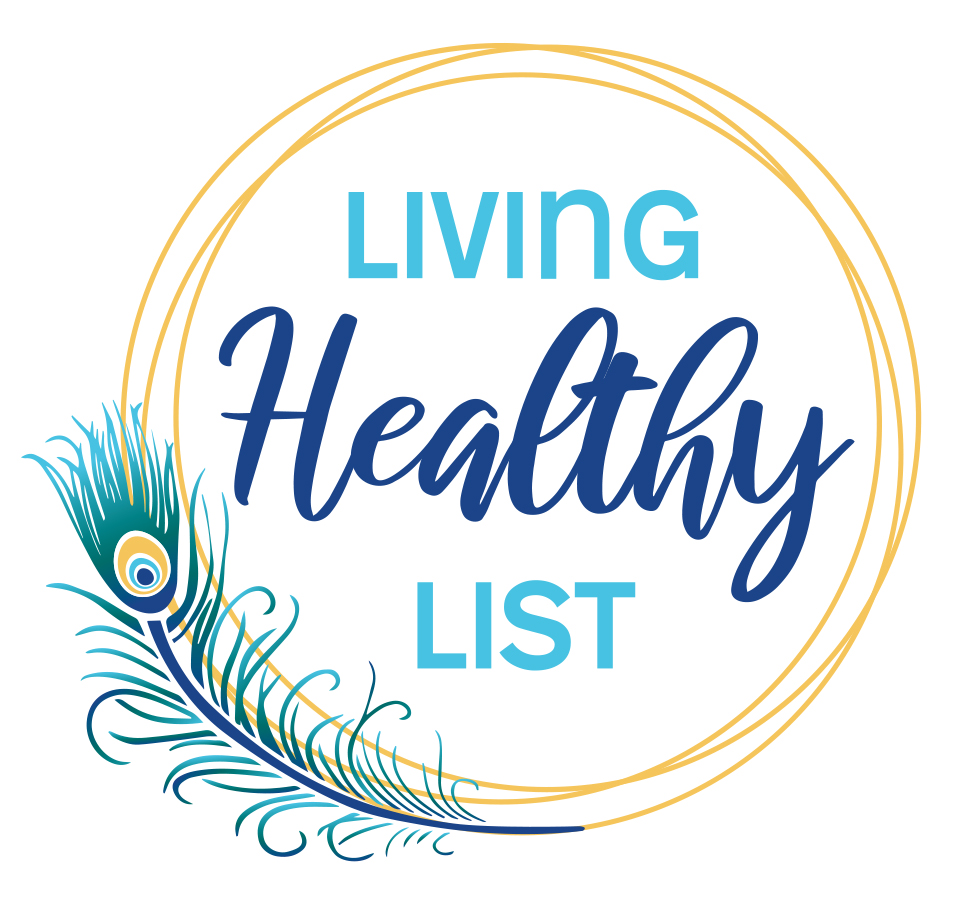Sleep! It’s the cornerstone to optimal health and equally important as eating healthy and exercising. Yet, 1 in 3 Americans are not getting enough and it’s negatively affecting everything we do! Is there a guide to better sleep?
It’s no secret that chronic stress, anxiety, and tension are the leading causes of insomnia and sleeplessness among adults. Sleep disorders like sleep apnea, side effects from medications, and other underlying medical conditions can also contribute to our lack of sleep.
Nonexistent sleep routines, exposure to high definition television, and blue light from our computers and cell phones are also keeping us up at night, too.
Sleep is that golden chain that ties our health and our bodies together. -Thomas Dekker
So, what’s the big deal if you don’t get enough sleep. If it’s once in a while then the consequences are minor, you feel tired the next day. But what if you don’t get enough sleep for days and weeks on end? How do you feel? How do you function?
Without the proper amount of sleep, 7-9 hours per night is recommended, excessive sleepiness interferes with school, work, activities, and relationships.
When you’re frequently tired you are less productive at work, you make more mistakes than normal and may experiences lapses in judgment.
While driving a car when you are sleepy may seem relatively harmless, it can have serious consequences! You are four times more likely to get into an accident if you got less than seven hours of sleep the night before.
Sleep deprivation can have similar effects on your body as drinking alcohol. Being awake for 18 hours straight makes you drive like you have a blood-alcohol level of .05 (At .08 you are considered drunk.)
Am I catching your attention, yet? Do you think you need a guide to better Sleep?
Poor sleep causes serious, long-term effects on your health. Reduced sleep is tied to cardiovascular problems, a depressed immune system (you get sick more frequently), increased inflammation (the stem of all disease), and weight gain.
When you are awake your body is essentially breaking down. When exercise or have a job where you do a lot of walking or heavy lifting your muscles suffer small tears in them that need to be repaired.
Guess when this repair happens? Yep, when you are sleeping! Athletes count on this breaking down and repair because it causes them to get stronger and faster. If you are not sleeping your body can’t repair itself so you get the opposite of stronger and faster and you’re more prone to injury.
Think of your body as a car. If you don’t clean and care for your car, especially throughout the winter the snow, ice, and salt will cause the metal to oxidize or rust. Basically, the same thing is happening to your body.
Additionally, staying up all night or having episodes of interrupted sleep is disrupting your circadian rhythm, the natural 24-hour cycle from light to dark. Our hormones are based on mother nature’s cycle and respond to the rhythm of the day accordingly.
Let’s take cortisol, the stress hormone for instance. In the morning we want our cortisol levels to be high. It helps wake us up and gives us energy throughout the day. As the day goes on cortisol levels should naturally decrease and then reach the lowest levels when its bedtime.
When your cortisol levels are high or “off” you can feel anxious, unmotivated, and fatigued. If our cortisol levels don’t shut off and are always at a high level it can lead to real issues as it has a profound effect on our entire body. It affects our hormones, thyroid, insulin, sex hormones, digestion, and immune system.
Cortisol also affects the neurotransmitters in our brain chemicals that determine our mood, focus, mental clarity, and oh yes, SLEEP!
I mentioned earlier that Sleep deprivation is linked to weight gain. So, if you’re not catching your zzz’s and you’re trying to lose weight you are fighting a “losing” battle.
Here’s why:
- When you are tired and running low energy, you automatically reach for comfort foods like chips or pizza. It’s never carrots and hummus.
- When you are sleep-deprived, the level of Ghrelin, the hormone that tells you when to eat, is raised. You have more ghrelin constantly telling you to eat. So, you eat more calories.
- Leptin is the hormone opposite to Ghrelin and tells you to stop eating. When you are sleep deprived, you have less leptin. So, you keep eating.
- As mentioned earlier the more sleep-deprived you are, the higher your levels of the stress hormone cortisol, which increases your appetite. Increase appetite means you eat more calories. Too many more calories equate to weight gain.
- Sleeplessness can fool your body into thinking you’re in danger and goes into survival mode and your fight or flight response kicks in. Your metabolism slows and holds on to extra calories instead of burning them.
What can we do to get better sleep and avoid all of this?
10 Tips to better sleep
- Try to wake naturally without an alarm clock which is tough at first. Ease yourself wakening by setting an alarm with a peaceful sound like a chime or gong. Prefer to get up with the sun then get a sunrise alarm clock until you naturally wake on your own. Also, remove conventional clocks from your bedroom and do not use your cell phone as an alarm.
- Complete your most pressing tasks in the morning; things like exercising, staff meetings stressful projects, etc. that require more energy and leave easier tasks for later in the day.
- Eat on a regular schedule. Oh, and Eat Real Food. Eliminate all processed refined sugars, grains, and anything that comes in a box.
- Get your daily dose of vitamin D by exposing your eyes and skin to the sun at least 15-20 minutes per day. If it’s not the season to get outside you may want to talk to your doctor about a vitamin D supplement.
- Eat a lighter meal for dinner before 8:00 p.m. Eat a small protein/fat/carb snack before bed to stop the surge of adrenaline and cortisol that often happens in the night when blood sugar is off if you still struggle with wakefulness.
- As the day winds down, shut your blinds and lower the lights. Light a few candles, turn on relaxing music, and take a warm bath with lavender.
- Turn off ALL electronics by 9:00 p.m. or use BLU BLOCKER glasses to read the computer, watch TV or read e-books. Additionally, to minimize nighttime exposure to blue light Download Flux for your computer. Flux makes the color of your computer’s display adapt to the time of day, warm at night and sunlight during the day.
- Read, drink chamomile tea, take a bath or shower, use lavender oil, do some relaxing stretching before bed.
- Remove ALL sources of light from your bedroom (including; televisions, phones, alarm clock lights, and light that filters through windows, etc.) If this is not possible wear an eye mask for total darkness. Bucky brand is the softest I have used. The masks come in a variety of colors and have a concave shape to fit your eyes. They look funny but who cares, you’re asleep!
- Be in bed asleep by 10:30 at the latest.
BONUS TIP
In order for your new sleep habits to have the desired effect, your bedroom must be set up in a certain way. Our friends from Edmonton Real Estate have all of the key elements for you set up your bedroom in a way that will help you fall asleep and stay asleep all night long. Read more on How to Design a Bedroom for Better Sleep.
If these steps don’t solve your sleep issues you may opt to get tested for adrenal fatigue by ordering a diurnal saliva test here.
Medically it is called adrenal insufficiency which is a term that describes nonspecific symptoms, such as body aches, fatigue, nervousness, sleep disturbances, and digestive problems.
Additionally, if your sleeplessness persists it may be time to contact your doctor whenever you are having issues with your health.
A good night’s sleep is essential to your wellbeing. Try out some of the suggestions laid out in this post tonight. Don’t overwhelm yourself by trying to do all of them at once. Just a few small changes to your habits may have you snoozing in mo time.
References:
- Article on How Artificial Light is Disrupting Your sleep
- https://www.cdc.gov/media/releases/2016/p0215-enough-sleep.html
- https://www.sleepfoundation.org/articles/drowsy-driving-vs-drunk-driving-how-similar-are-they
- https://newsroom.aaa.com/2016/12/missing-1-2-hours-sleep-doubles-crash-risk/
- https://blog.bulletproof.com/adrenal-fatigue-treatment-symptoms/
- https://www.edmontonrealestate.ca/improve-sleep-at-home.php

Meet Denise E. Stegall, the CEO and Curator of Living Healthy List.com. With 25 years of experience and study in nutrition, cooking, exercise, and coaching, she helps female entrepreneurs and businesswomen curate a healthy, happy, and productive life.
As an inspirational thought leader, Denise provides honest, research-backed information on health, wellness, personal development, and fun for real-life application. Her platform, Living Healthy List, is a go-to community for health and wellness resources, empowering positive changes and creating the life you want.
Denise’s background in nutrition and her philosophy of “Eat Real Food, Make Good Decisions, and Be Accountable” shaped her International Best Seller, “Healthy Living, Happy Life: A Practical Path to Finding the Healthy Lifestyle That Works for You!”
She goes beyond her book and Living Healthy List to offer “Forever Wellness Lifestyle ,” a groundbreaking group coaching model with individualized roadmaps for true health, balance, stress management, confidence, and an uplifting lifestyle. Denise E. Stegall is devoted to empowering individuals to embrace holistic well-being and fulfillment.
“Living a healthy lifestyle does not have to be hard! “

